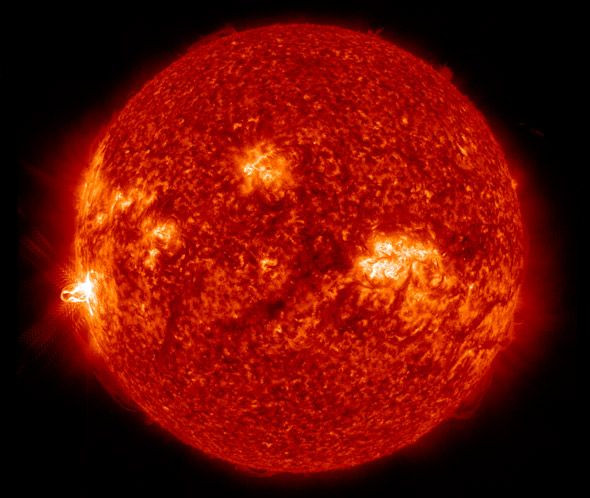Plasma 'Shield' In Earth's Magnetic Field Protects The Planet From Solar Storms

The sun can wreak a lot of havoc on Earth during its more active periods. Coronal mass ejections can send solar storms of charged particles that can lead to radio blackouts and geomagnetic storms. Fortunately Earth has an insurance policy, a “plasma shield” located within the planet’s magnetic field.
An X-class solar flare created enough space radiation to delay Orbital Sciences’ International Space Station resupply mission in January and these solar storms could affect satellites as well as astronauts orbiting Earth. Luckily the Earth’s magnetic field, known as the magnetosphere, protects the planet from solar storms, and researchers have identified a process involving plasma that acts as another protective barrier.
In a press release, researchers from the Massachusetts Institute of Technology and NASA say a jet of plasma, super-heated ionized gas, slows down magnetic reconnection, the process where the magnetic field is rearranged. The team, led by John Foster, associate director of MIT’s Haystack Observatory, analyzed Earth’s plasma plumes by monitoring distortions in radio signals.
In order to create maps of plasma plumes and other atmospheric phenomena, researchers use more than 1,000 Earth-based receivers that collect incoming radio signals from GPS satellites. Geomagnetic storms and space radiation can distort these signals, however. Finding evidence of a plasma plume during a solar storm in January, Foster teamed up with members of NASA's Goddard Space Flight Center to observe what was happening from space.
NASA's space observations confirmed the evidence of a plasma plume as well as the reduction of the force of solar storms. Earth’s magnetic field extends outward and interacts with the sun’s magnetic field. This interaction leads to magnetic reconnection and allows charged particles to get through Earth’s magnetic field.
"It slows down reconnection, and it can contribute to the generation of waves that, in turn, accelerate particles in other parts of the magnetosphere. So it’s a recirculation process, and really fascinating," said Foster about the plasma plume in a statement. The research was published in the journal Science.
© Copyright IBTimes 2025. All rights reserved.






















